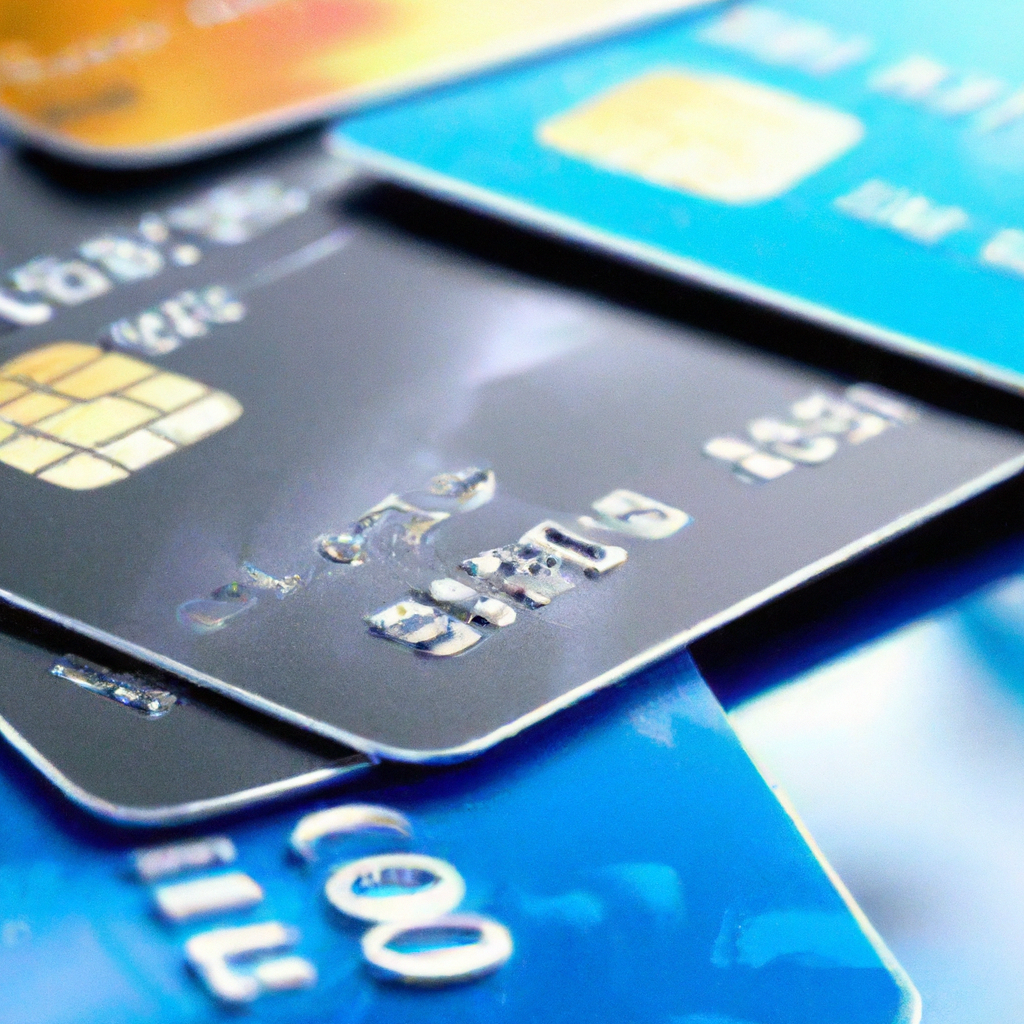In today’s world, credit cards have become an essential tool for managing our finances and making purchases. But do you truly understand the basics of credit cards? This article is here to help you navigate the world of credit cards and provide you with the knowledge you need to make informed decisions. From understanding interest rates and fees to choosing the right credit card for your needs, we’ve got you covered. So sit back, relax, and let’s unravel the mysteries of credit card basics together.

This image is property of images.pexels.com.
Credit Card Basics
A credit card is a financial tool that allows you to make purchases and borrow money up to a certain credit limit. It can be a convenient way to pay for goods and services, as well as build your credit history. However, before you dive into the world of credit cards, it’s important to understand the basics. This article will guide you through the different types of credit cards, how they work, key terms and definitions, rewards programs, and responsible credit card usage.
1. Types of Credit Cards
1.1 Secured Credit Cards
Secured credit cards are designed for individuals with no credit history or a poor credit score. To obtain a secured credit card, you are required to provide a cash deposit as collateral. This collateral serves as a security measure for the credit card issuer and reduces the risk of lending to individuals with limited or bad credit.
1.2 Unsecured Credit Cards
Unsecured credit cards are the most common type of credit cards. Unlike secured cards, they don’t require a cash deposit as collateral. These cards are ideal for individuals with good credit scores and a steady income. Unsecured credit cards offer higher credit limits and often come with perks and rewards.
1.3 Rewards Credit Cards
Rewards credit cards are popular among consumers looking to earn benefits for their spending. These cards offer various types of rewards, such as cash back, travel points, airline miles, or retail rewards. Choosing the right rewards credit card depends on your spending habits and the type of rewards you value most.
1.4 Balance Transfer Credit Cards
If you have existing credit card debt, a balance transfer credit card can help you consolidate your debt and save money on interest. These cards allow you to transfer your outstanding balances from other credit cards onto a single card with a lower interest rate. It’s important to understand the terms and fees associated with balance transfers before making a decision.
1.5 Travel Credit Cards
Frequent travelers can benefit from travel credit cards that offer rewards and perks specifically tailored to their travel needs. These cards often provide travel credits, airport lounge access, travel insurance, and points or miles towards future travel expenses. It’s important to consider the annual fees and foreign transaction fees associated with travel credit cards.
1.6 Business Credit Cards
Business credit cards are designed for small business owners and entrepreneurs. They help separate personal and business expenses, track business spending, and build business credit history. Business credit cards often offer perks such as cash back, travel rewards, and expense management tools.
1.7 Student Credit Cards
Student credit cards are designed for college students who are starting to build their credit history. These cards often have lower credit limits and are more forgiving when it comes to credit requirements. Student credit cards can be a great way to learn responsible credit card usage and establish credit at an early age.
1.8 Prepaid Credit Cards
Prepaid credit cards are not technically credit cards, as they do not extend credit. Instead, they are funded with your own money, which you can spend like a regular credit card. Prepaid credit cards can be a good option for individuals who want the convenience of a credit card without the risk of going into debt.
1.9 Store Credit Cards
Store credit cards are issued by specific retailers and can only be used at their stores or affiliated locations. These cards often come with perks such as discounts, special financing offers, and loyalty rewards for frequent shoppers. However, store credit cards typically have higher interest rates, so it’s important to consider the terms and fees before applying.
1.10 Charge Cards
Charge cards are similar to credit cards, but they require you to pay off the balance in full each month. These cards do not have a pre-set spending limit, but your purchasing power is based on your creditworthiness and payment history. Charge cards are a good option for individuals who want the convenience of a credit card without the temptation of carrying a balance.

This image is property of images.pexels.com.
2. How Credit Cards Work
2.1 Credit Card Issuers
Credit card issuers are financial institutions or banks that issue credit cards to consumers. They are responsible for setting the terms and conditions of your card, including the interest rates, fees, and credit limits. Common credit card issuers include major banks, credit unions, and financial services companies.
2.2 Credit Card Networks
Credit card networks are the infrastructure that allows credit card transactions to take place. They act as intermediaries between the cardholder, the merchant, and the card issuer. Common credit card networks include Visa, Mastercard, American Express, and Discover. These networks determine where your credit card can be used and handle the electronic transmission of payment data.
2.3 Credit Card Application Process
To obtain a credit card, you’ll need to go through the application process. This typically involves filling out an application form and providing personal information, such as your name, address, social security number, and income details. The credit card issuer will then evaluate your creditworthiness before approving or denying your application.
2.4 Credit Limits
A credit limit is the maximum amount of money you can borrow on your credit card. It is determined by your credit card issuer based on factors such as your credit history, income, and debt-to-income ratio. It’s important to understand your credit limit and avoid exceeding it, as doing so can result in overlimit fees and negatively impact your credit score.
2.5 Interest Rates
Interest rates on credit cards can vary greatly and are typically expressed as an Annual Percentage Rate (APR). The APR represents the cost of borrowing money over a year and includes both the interest rate and any applicable fees. It’s important to compare APRs when choosing a credit card, as higher APRs can result in more interest charges if you carry a balance.
2.6 Minimum Payments
Each month, you are required to make a minimum payment on your credit card balance. The minimum payment is typically a small percentage of your total balance, often around 1-3%. While making the minimum payment is the minimum requirement, it’s important to pay off your balance in full whenever possible to avoid accumulating high interest charges.
2.7 Grace Period
The grace period is the time between your statement closing date and the payment due date. During this period, you have the opportunity to pay your balance in full without incurring interest charges. Grace periods typically range from 21 to 25 days, but it’s important to check your credit card terms to understand the specific grace period for your card.
2.8 Credit Score
Your credit score is a numerical representation of your creditworthiness and is used by lenders to assess your risk as a borrower. It is influenced by factors such as your payment history, credit utilization, length of credit history, and new credit applications. Responsible credit card usage, such as making payments on time and maintaining low credit utilization, can help improve your credit score over time.
2.9 Credit Card Fees
Credit card fees can include annual fees, balance transfer fees, late payment fees, overlimit fees, cash advance fees, and foreign transaction fees, among others. It’s important to review the terms and conditions of your credit card to understand the fees associated with your card and avoid unnecessary charges.
2.10 Credit Card Security
Credit card security is essential to protect yourself against fraud and unauthorized use of your card. It’s important to keep your credit card information secure, monitor your statements for any unauthorized charges, and report any lost or stolen cards immediately. Many credit card issuers also offer fraud protection services and allow you to set up alerts for suspicious activity.

This image is property of images.pexels.com.
3. Credit Card Terms and Definitions
3.1 APR
APR stands for Annual Percentage Rate and represents the cost of borrowing money on your credit card over a year. It includes the interest rate, as well as any applicable fees.
3.2 Introductory APR
Introductory APR refers to a promotional interest rate offered by credit card issuers for a limited period of time. This lower rate is usually valid for purchases, balance transfers, or both.
3.3 Annual Fee
An annual fee is a fee charged by the credit card issuer every year for the privilege of having a credit card. Not all credit cards have annual fees, and it’s important to consider the benefits and costs of a card before committing to paying an annual fee.
3.4 Balance Transfer Fee
A balance transfer fee is a fee charged when you transfer an existing credit card balance onto a new credit card. This fee is typically a percentage of the amount being transferred and should be taken into consideration when deciding whether to transfer your balance.
3.5 Late Payment Fee
A late payment fee is charged when you do not make your credit card payment by the due date. This fee can range from a set dollar amount to a percentage of your minimum payment and is typically added to your next statement.
3.6 Overlimit Fee
An overlimit fee is charged when you exceed your credit limit. However, since the Credit CARD Act of 2009, you must opt in to allow your credit card issuer to approve purchases that would put you over your credit limit.
3.7 Cash Advance Fee
A cash advance fee is charged when you use your credit card to get cash from an ATM or through a cash advance transaction. This fee is typically a percentage of the amount withdrawn and may also be subject to a higher interest rate.
3.8 Foreign Transaction Fee
A foreign transaction fee is charged when you use your credit card to make purchases in a foreign currency or with a merchant located outside of your home country. This fee is usually a percentage of the transaction amount and can add up quickly if you frequently travel internationally.
3.9 Credit Limit
A credit limit is the maximum amount of money you can borrow on your credit card. It is set by the credit card issuer based on factors such as your credit score, income, and debt-to-income ratio.
3.10 Statement
A statement is a summary of your credit card activity for a specific billing period. It includes details such as your beginning and ending balance, transactions, interest charges, fees, and minimum payment due.

4. Credit Card Rewards Programs
4.1 Cash Back
Cash back rewards programs allow you to earn a percentage of your purchases back in the form of cash. This is typically credited to your account or sent to you as a check or direct deposit.
4.2 Travel Rewards
Travel rewards programs allow you to earn points or miles that can be redeemed for travel-related expenses, such as flights, hotels, rental cars, or vacation packages.
4.3 Points
Points-based rewards programs allow you to earn points for your purchases, which can be redeemed for a variety of rewards, such as merchandise, gift cards, or experiences.
4.4 Airline Miles
Airline miles rewards programs allow you to earn miles that can be redeemed for free or discounted flights, upgrades, or other travel-related perks.
4.5 Hotel Rewards
Hotel rewards programs allow you to earn points or free nights for your hotel stays. These points can be redeemed for future stays, room upgrades, or other hotel amenities.
4.6 Retail Rewards
Retail rewards programs are offered by specific retailers and allow you to earn points or discounts for your purchases at their stores. These rewards can be redeemed for future purchases or exclusive offers.
4.7 Gas Rewards
Gas rewards programs allow you to earn discounts or cash back on your gas purchases. This can help offset the cost of fuel and save you money at the pump.
4.8 Dining Rewards
Dining rewards programs allow you to earn points or cash back for dining out at restaurants or ordering takeout. These rewards can be a great way to save money on your food expenses.
4.9 Statement Credits
Statement credits are rewards that can be applied directly to your credit card balance. This can help reduce your overall balance and save you money on interest charges.
4.10 Redemption Options
Redemption options vary depending on the credit card rewards program. Common redemption options include cash back, travel bookings, merchandise, gift cards, or even charitable donations. It’s important to understand the redemption options for your specific credit card and evaluate which rewards are most valuable to you.

5. Responsible Credit Card Usage
5.1 Budgeting
Creating a budget is essential for responsible credit card usage. It helps you keep track of your income and expenses, set spending limits, and avoid overspending. By sticking to your budget, you can ensure that you can comfortably pay off your credit card balance each month.
5.2 Paying on Time
Making payments on time is crucial to maintaining a good credit history and avoiding late payment fees. Set up automatic payments or use reminders to ensure you never miss a payment. Late payments can also result in higher interest rates and negatively impact your credit score.
5.3 Avoiding Debt
While credit cards can be a useful financial tool, it’s important to avoid excessive debt. Only charge what you can afford to pay off, and avoid carrying a balance if possible. Paying off your credit card balance in full each month can save you money on interest charges and help improve your credit score.
5.4 Monitoring Statements
Regularly reviewing your credit card statements is essential for spotting any errors or fraudulent activity. It allows you to catch any unauthorized charges early and take action to resolve the issue. Monitoring your statements also helps you stay on top of your spending and budgeting goals.
5.5 Reviewing Credit Report
Reviewing your credit report regularly is important to ensure its accuracy and identify any potential errors or signs of identity theft. You are entitled to a free credit report from each of the three major credit bureaus once a year. Checking your credit report can also help you track your credit score and monitor your financial progress.
5.6 Maintaining Low Credit Utilization
Credit utilization refers to the percentage of your available credit that you are using. Keeping your credit utilization low, ideally below 30%, can have a positive impact on your credit score. It shows lenders that you are responsible with your credit and not heavily reliant on borrowed funds.
5.7 Avoiding Credit Card Fraud
Protecting yourself against credit card fraud is essential. Regularly monitor your credit card statements for any unauthorized charges, use secure websites for online transactions, and never share your credit card information with anyone you don’t trust. If you suspect fraud, report it to your credit card issuer immediately.
5.8 Reporting Lost or Stolen Cards
If your credit card is lost or stolen, it’s important to report it to your credit card issuer right away. Most issuers have 24/7 customer service lines for reporting lost or stolen cards. This will help protect you from unauthorized charges and ensure that a new card is issued to you promptly.
5.9 Resolving Disputes
If you have a dispute with a merchant regarding a charge on your credit card, it’s important to contact your credit card issuer to initiate a dispute resolution process. The issuer will investigate the dispute and work with you and the merchant to resolve the issue. Providing all necessary documentation and keeping records of your communication is crucial during this process.
5.10 Closing Credit Card Accounts
Closing a credit card account should be done carefully and only when necessary. Closing a credit card account can impact your credit utilization and credit history. If you decide to close a credit card, make sure to pay off the balance in full and contact the credit card issuer to request the closure in writing.
In conclusion, understanding credit card basics is essential for responsible credit card usage. By familiarizing yourself with the different types of credit cards, how they work, key terms and definitions, rewards programs, and practicing responsible habits, you can make informed choices and use credit cards to your advantage. Remember to always read the fine print, compare credit card offers, and pay attention to your credit limit, interest rates, fees, and rewards programs. With the right knowledge and responsible usage, credit cards can be a valuable financial tool.





